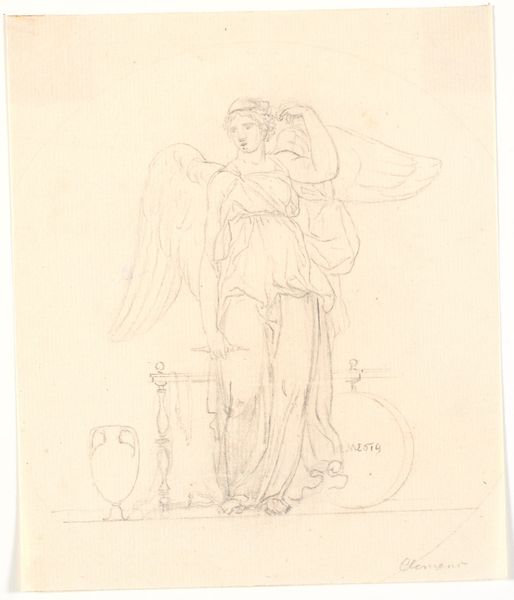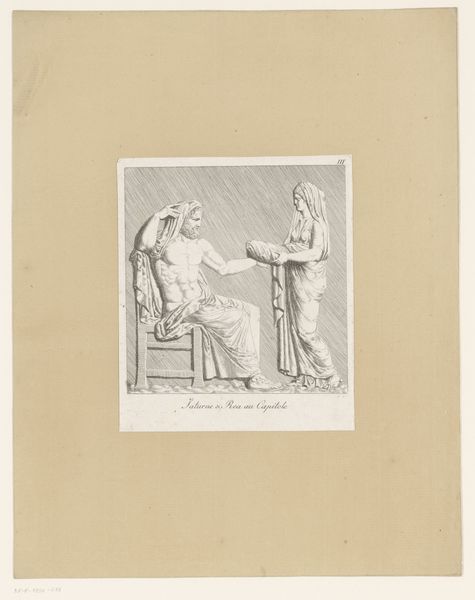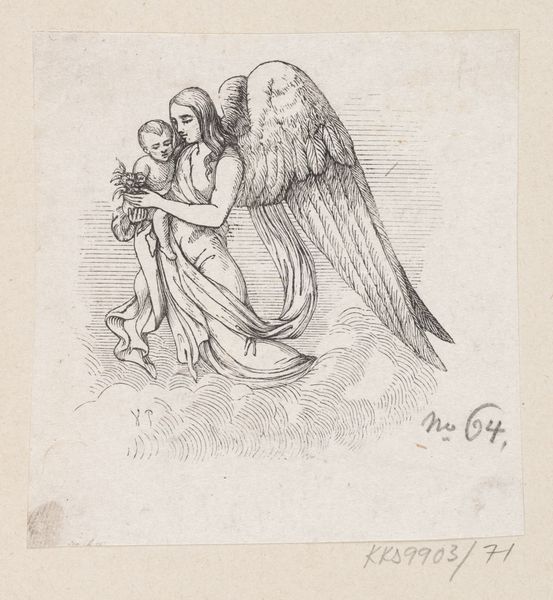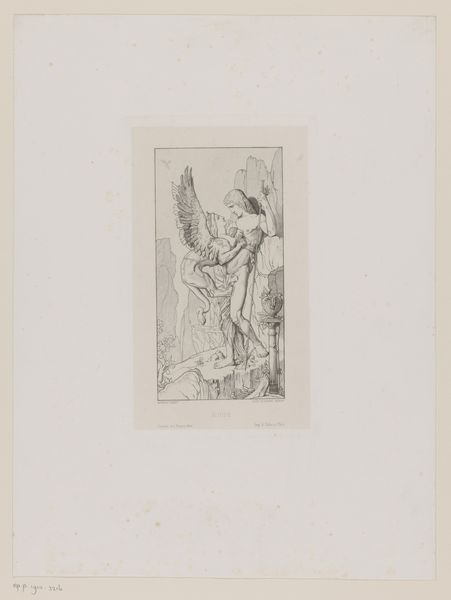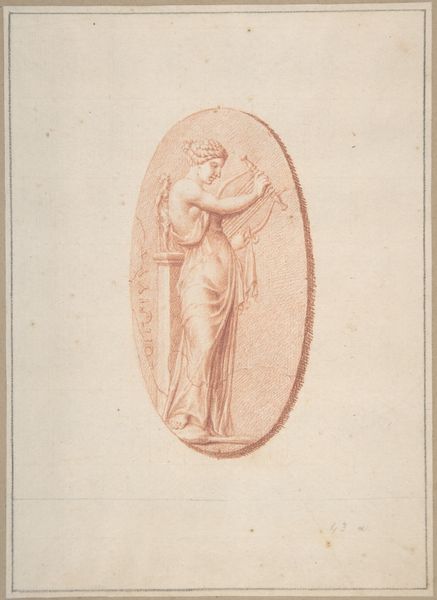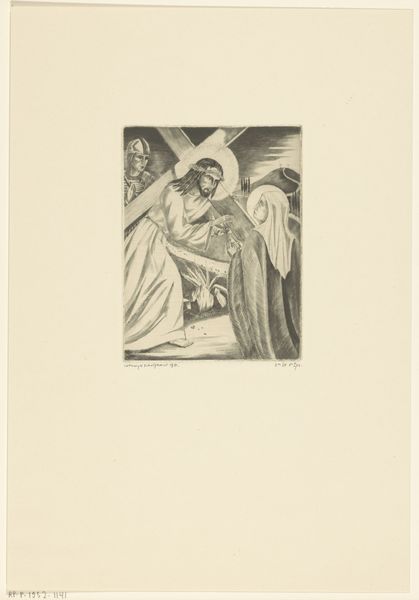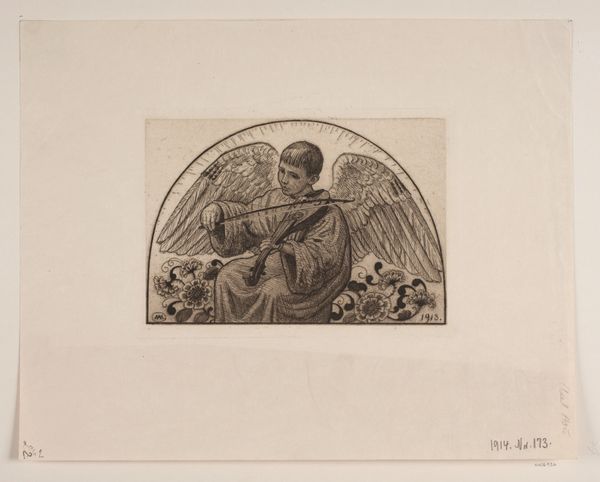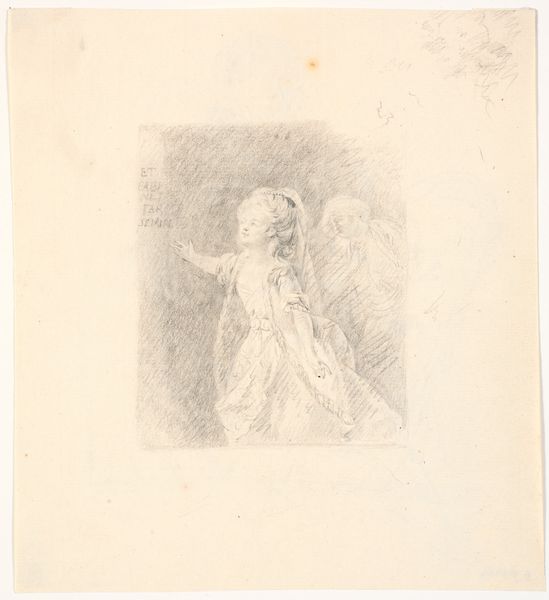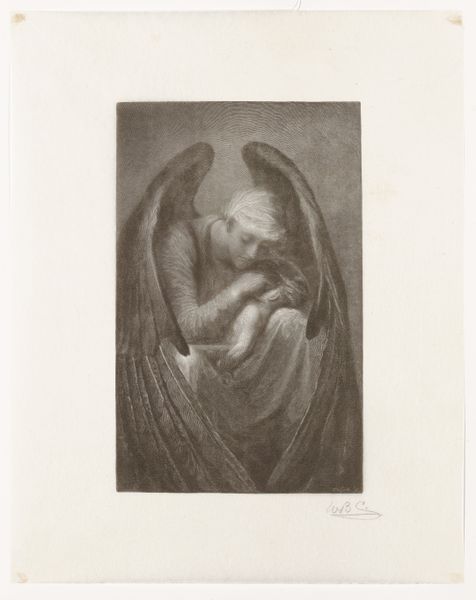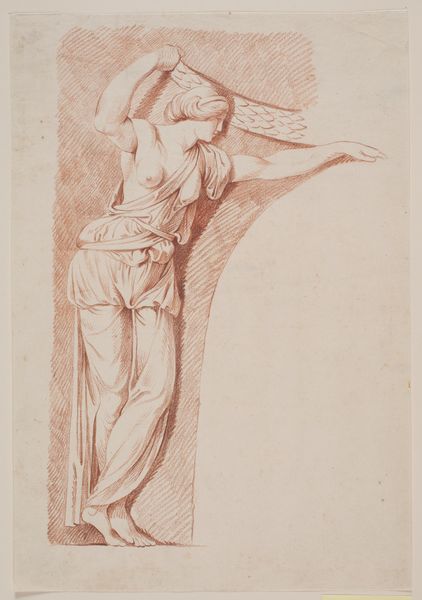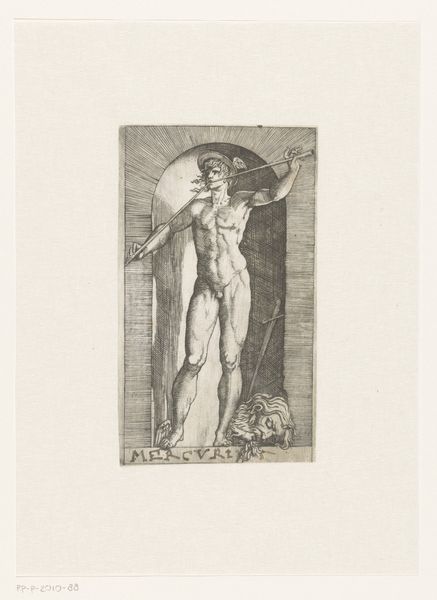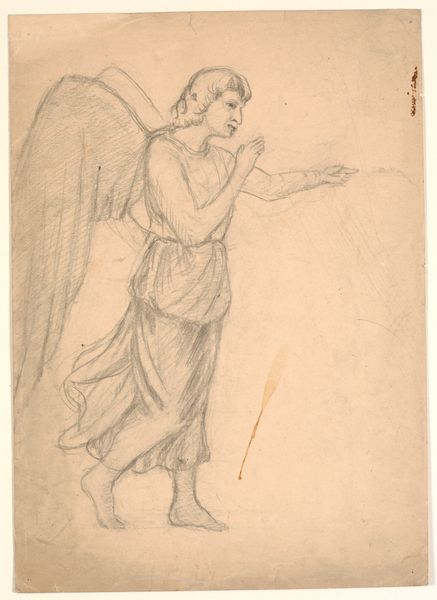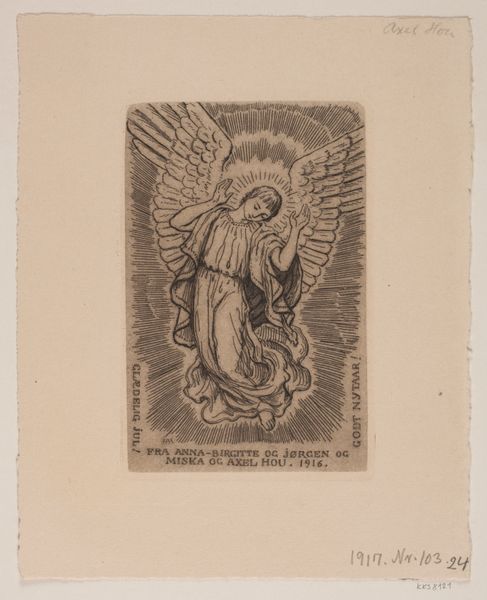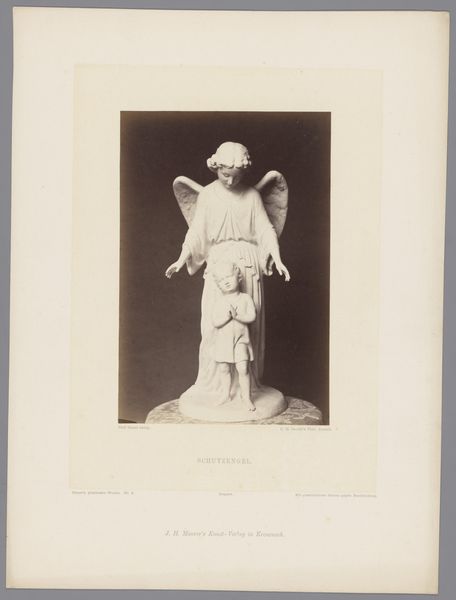
#
photo of handprinted image
#
aged paper
#
toned paper
#
light pencil work
#
photo restoration
#
light coloured
#
old engraving style
#
retro 'vintage design
#
personal sketchbook
#
old-timey
Dimensions: height 156 mm, width 126 mm
Copyright: Rijks Museum: Open Domain
Curator: Immediately, there's a contemplative mood to this. It feels fragile, with such fine lines and subtle shading. Editor: We’re looking at "Titelprent met een schrijvende engel" - "Title page with a writing angel." Henri Keller created this piece in 1796. It now resides in the Rijksmuseum. Curator: A writing angel. It evokes powerful connections to histories of authorship, usually defined and determined by privileged demographics in Europe. How often have these angels truly represented voices outside of dominant cultural spheres? I wonder about the narratives suppressed, or actively silenced, throughout this time. Editor: The choice of an angel highlights divine inspiration. It would be interesting to explore how Keller’s imagery relates to prevailing social perceptions and intellectual movements during the late 18th century, particularly the Enlightenment’s influence on views of the church, knowledge, and human experience. Curator: Exactly, consider what “divine inspiration” meant when society began shifting away from rigid religious structures. Who still had access to such ‘divine’ wisdom, and who was deliberately excluded? And in those margins, were other types of art or expressions born? Editor: Note that this wasn’t a painting or drawing, but an engraving. The use of printmaking meant the image could be reproduced, which speaks to ideas about spreading knowledge or information – perhaps as propaganda or social critique, but perhaps not as a direct critique in this example. Curator: I see your point. That potential for dissemination can certainly reframe our reading of the angel as a herald of potentially revolutionary thought – what stories might the printmaker intend for its new viewers to inscribe upon the symbol of such "divine" knowledge? Editor: It invites reflection, and a nuanced appreciation. Curator: Precisely. It asks us to critically assess representation, agency, and authorship in a quickly changing era.
Comments
No comments
Be the first to comment and join the conversation on the ultimate creative platform.
